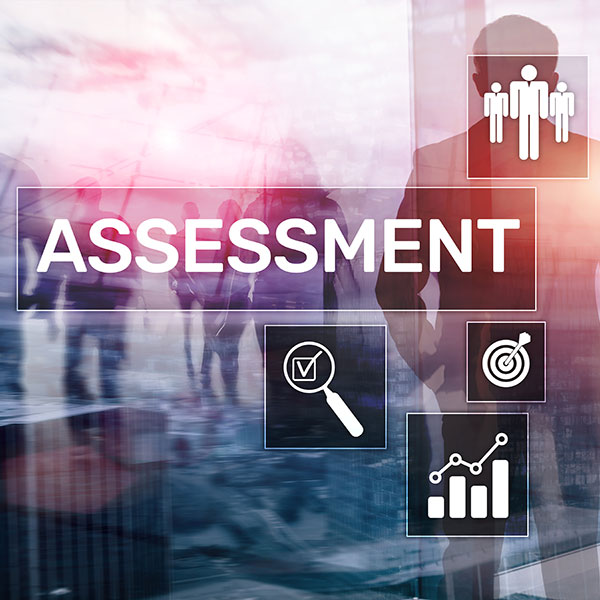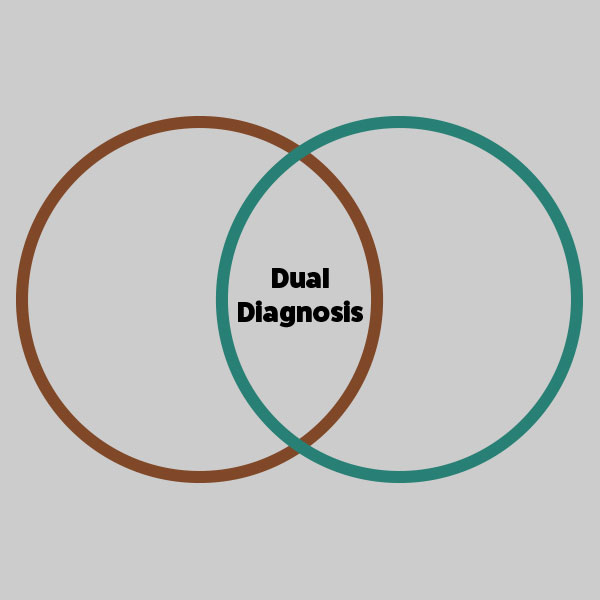8 Types of Alcohol Counseling Fort Collins
A comprehensive alcohol counseling program may include a range of services to address the diverse needs of individuals dealing with alcohol-related issues.
Here’s a list of comprehensive alcohol counseling services:
Type 1 of Alcohol Counseling Fort Collins: Individual Counseling:
One-on-one sessions with a qualified counselor to address personal concerns, triggers, and coping mechanisms.
Licensed Counselors:
Individual alcohol counseling Fort Collins is provided by licensed and experienced counselors specializing in addiction and substance abuse.
Assessment and Customized Treatment:
The process often begins with an initial assessment to understand the individual’s unique situation, history of alcohol use, and any underlying issues. Based on this assessment, the counselors at Breathe Counseling develop a customized treatment plan.
Confidentiality:
Confidentiality is a crucial aspect of counseling. Counselors adhere to professional ethics, ensuring that the information shared during sessions remains private and secure.
Therapeutic Approaches:
Breathe Counseling will employ different therapeutic approaches, depending on your circumstances, such as cognitive-behavioral therapy (CBT), motivational interviewing, dialectical behavior therapy (DBT), or other evidence-based practices. These approaches aim to address the psychological and behavioral aspects of alcohol use.
Goal Setting:
Collaboratively setting and working towards specific goals is a key component of individual therapy at Breathe Counseling. Goals may include reducing or eliminating alcohol use, improving coping skills, and enhancing overall well-being.
Coping Skills Development:
Individuals are guided in developing effective coping mechanisms to manage stress, triggers, and challenges without resorting to alcohol use.
Exploration of Underlying Issues:
Counselors work with individuals to explore any underlying issues contributing to alcohol misuse, such as trauma, mental health concerns, or interpersonal conflicts.
Relapse Prevention:
At Breathe Counseling, a significant focus is placed on developing relapse prevention strategies. Individuals learn to identify potential triggers and develop plans to maintain sobriety.
Supportive Environment:
Individual counseling sessions provide a safe and supportive environment where individuals can openly discuss their feelings, concerns, and progress without judgment.
Flexible Session Scheduling:
Session frequency may vary based on individual needs and the counselor’s recommendations. Some individuals may benefit from more frequent sessions, especially in the early stages of treatment.
Collaboration with Other Services:
Counselors may collaborate with other healthcare professionals, such as medical doctors, psychiatrists, or support groups, to ensure a comprehensive approach to treatment.
Progress Monitoring for Alcohol Counseling Fort Collins:
Regular assessment and progress monitoring are integral to the counseling process. Treatment plans may be adjusted based on the individual’s evolving needs and progress.
To find individual alcohol counseling services in Fort Collins, you can start by searching online directories, contacting local mental health organizations, or asking for recommendations from healthcare providers. Additionally, reaching out to counseling centers, addiction treatment facilities, or private practitioners in the area may help you identify suitable options.

Type 2 of Alcohol Counseling Fort Collins: Family Counseling:
Involvement of family members to address the impact of alcohol misuse on relationships and to foster a supportive home environment.
Family-based alcohol counseling is a specialized form of therapy that involves family members in the treatment process to address the impact of alcohol misuse on relationships and to foster a supportive home environment. Here are key aspects of alcohol counseling involving family members:
Family Systems Approach:
Family counseling typically adopts a family systems approach, viewing the family as an interconnected unit where each member’s well-being is interrelated. The focus is on understanding and addressing the dynamics within the family system.
Communication and Understanding:
Counselors work with family members to improve communication and understanding. This involves exploring how alcohol misuse affects family relationships, emotions, and interactions.
Education about Alcohol Misuse:
Family members receive education about alcohol misuse, its effects, and the challenges associated with recovery. Understanding the nature of addiction can reduce stigma and promote empathy.
Setting Healthy Boundaries:
Counselors help family members establish healthy boundaries. This may include setting limits on enabling behaviors and encouraging supportive actions that contribute to the individual’s recovery.
Codependency Awareness:
Addressing codependency is a common aspect of family-based therapy at Breathe Counseling. Family members may learn about enabling behaviors and the importance of fostering individual responsibility.
Impact on Children:
If applicable, the counselor addresses the impact of alcohol misuse on children within the family. This includes understanding how children perceive and are affected by a family member’s substance use.
Family Support Strategies:
At Breathe Counseling, therapists guide families in developing support strategies to aid the recovery process. This involves creating an environment that promotes sobriety and emotional well-being.
Enhancing Coping Skills:
Family members learn effective coping skills to deal with the challenges of living with and supporting someone in recovery. This may involve stress management, conflict resolution, and emotional regulation techniques.
Family Therapy Sessions:
Family therapy sessions may be conducted with the entire family unit or smaller groups within the family. These sessions provide a structured environment for open communication and problem-solving.
Involvement in Treatment Planning:
Family members are often involved in the treatment planning process. Collaborative goal-setting ensures that the entire family is engaged in the recovery journey.
Rebuilding Trust:
For families dealing with trust issues resulting from alcohol misuse, counseling helps in rebuilding trust through open communication, consistency, and demonstrated behavioral changes.
Aftercare Planning:
Aftercare planning involves preparing the family for the challenges that may arise after formal treatment. This includes strategies for ongoing support, relapse prevention, and maintaining a healthy family dynamic.
Long-Term Healing:
Family-based alcohol counseling aims for long-term healing and recovery, recognizing that the family plays a crucial role in the individual’s ongoing well-being.
Family involvement in alcohol counseling can significantly improve outcomes for the individual struggling with alcohol misuse. It provides a comprehensive and holistic approach to recovery by addressing the systemic impact of addiction on family dynamics.

Type 3 of Alcohol Counseling Fort Collins: Couples Counseling:
Specifically tailored for couples dealing with the effects of alcohol misuse, focusing on communication, trust, and relationship dynamics.
Couples counseling for alcohol-related issues, often referred to as couples therapy or marital therapy, is a specialized form of counseling that involves both partners in a relationship. The primary goal is to address the impact of alcohol misuse on the couple’s relationship and to support recovery efforts.
Here are key aspects of alcohol counseling in the context of couples:
Joint Participation:
Both partners actively participate in counseling sessions. This joint involvement fosters open communication, shared understanding, and mutual support in addressing the challenges of alcohol misuse.
Communication Skills:
Couples counseling at Breathe Counseling places a strong emphasis on improving communication skills. Partners learn to express their feelings, concerns, and needs in a constructive and supportive manner.
Impact on the Relationship:
The counselor explores how alcohol misuse has affected the couple’s relationship. This involves examining patterns of communication, trust issues, emotional intimacy, and overall relationship dynamics.
Shared Decision-Making:
Couples work together to make decisions related to treatment goals, sobriety, and lifestyle changes. Shared decision-making helps build a collaborative and supportive approach to recovery.
Individual Responsibilities:
Partners are encouraged to take individual responsibility for their actions and contributions to the relationship. This includes acknowledging the impact of alcohol misuse and working towards positive change.
Building Trust:
Trust may be eroded due to the effects of alcohol misuse. Couples counseling focuses on rebuilding trust through honest communication, transparency, and commitment to agreed-upon goals.
Setting Boundaries:
Couples learn to set healthy boundaries regarding alcohol use and related behaviors. Establishing clear expectations helps create a supportive environment for recovery.
Relapse Prevention:
Couples counseling addresses relapse prevention strategies. Partners work together to identify potential triggers, develop coping mechanisms, and support each other in maintaining sobriety.
Understanding Triggers:
The counselor helps couples identify and understand triggers for alcohol use within the relationship. This may involve exploring stressors, conflicts, or other factors that contribute to the desire to drink.
Conflict Resolution for Alcohol Counseling Fort Collins:
Couples learn effective conflict resolution skills to navigate challenges without resorting to harmful behaviors. This includes finding constructive ways to address disagreements and differences.
Improving Intimacy:
Alcohol misuse can impact emotional and physical intimacy within a relationship. Couples counseling aims to improve overall intimacy by addressing underlying issues and fostering a deeper connection.
Supportive Environment:
The counseling environment provides a safe and non-judgmental space for partners to express themselves. It encourages empathy, understanding, and collaboration in the journey toward recovery.
Long-Term Relationship Goals:
Couples counseling often involves discussions about long-term relationship goals, both within the context of recovery and the broader aspects of the relationship.
Couples counseling for alcohol-related issues is beneficial for partners who want to work together to overcome the challenges posed by alcohol misuse. It provides a structured and supportive framework for navigating the complexities of addiction within a relationship. Couples are encouraged to seek the guidance of qualified and experienced therapists or counselors specializing in this area.

Type 4 of Alcohol Counseling Fort Collins: Intervention Services:
Professional guidance and support for families or friends seeking to intervene in a constructive and supportive manner.
Alcohol counseling intervention, commonly referred to as an alcohol intervention, is a carefully planned and structured process designed to help individuals with alcohol-related issues recognize the need for treatment and initiate the journey toward recovery. It typically involves the collective effort of family members, friends, and a trained interventionist. Here are key aspects of alcohol counseling intervention:
Purpose:
The primary purpose of an alcohol intervention is to confront the individual with alcohol misuse and motivate them to seek help. At Breathe Counseling, we look at this as an opportunity for loved ones to express their concerns and encourage the person to enter treatment.
Pre-Planning:
Intervention is a well-organized and pre-planned event. Family members and friends work together with a professional interventionist to strategize and coordinate the process.
Choosing an Interventionist:
An interventionist is often a licensed therapist or counselor with experience in addiction intervention. They facilitate the intervention, guide the process, and provide support to both the individual and the participants.
Information Gathering:
Family members and friends gather information about the individual’s alcohol misuse, its impact on relationships and daily life, and any previous attempts at treatment.
Education:
Participants in the intervention are educated about addiction, treatment options, and the importance of seeking professional help. This information helps them communicate effectively during the intervention.
Planning and Rehearsal:
Participants work with the interventionist to plan what they will say and how they will express their concerns. Rehearsals are often conducted to ensure that the intervention remains focused and supportive.
Confrontation:
During the intervention, participants express their love and concern for the individual and share specific instances where alcohol misuse has had a negative impact. This confrontation is done in a caring and non-confrontational manner.
Offering Support:
Participants express their commitment to providing support for the individual’s recovery. This may involve helping with treatment arrangements, attending therapy sessions, and offering emotional support throughout the process.
Setting Boundaries:
Clear and healthy boundaries are established, outlining the consequences if the individual refuses to accept help. These consequences are communicated with love and concern.
Treatment Options:
The interventionist at Breathe Counseling helps the individual understand the available treatment options, such as inpatient or outpatient rehabilitation, counseling, support groups, and other recovery resources.
Immediate Action:
Ideally, an alcohol intervention results in the individual agreeing to seek help immediately. Plans for treatment are set in motion without delay to capitalize on the willingness expressed during the intervention.
Follow-Up for Alcohol Counseling Fort Collins:
After the intervention, ongoing support and follow-up are crucial. Family members may continue to work with the interventionist or other professionals to ensure that the individual remains engaged in the recovery process.
Professional Involvement:
In some cases, a professional interventionist may recommend involving law enforcement or legal authorities, especially if the individual’s alcohol misuse poses immediate risks to themselves or others.
It’s important to note that alcohol interventions should be conducted with compassion, empathy, and a focus on encouraging the individual to seek help. Professional interventionists play a critical role in guiding the process and ensuring that it remains a supportive and effective means of initiating treatment for alcohol-related issues.

Type 5 of Alcohol Counseling Fort Collins: Assessment and Evaluation:
Comprehensive assessments to determine the severity of alcohol use and to create personalized treatment plans.
Assessment and evaluation services play a crucial role in alcohol counseling by providing a thorough understanding of an individual’s alcohol use, related behaviors, and underlying issues. These services are often the starting point for creating personalized treatment plans. Here’s an overview of assessment and evaluation in the context of alcohol counseling:
Purpose of Assessment:
The primary purpose of assessment at Breathe Counseling is to gather comprehensive information about an individual’s alcohol use, history, and related factors. This helps in determining the severity of the issue and developing an appropriate treatment plan.
Initial Screening:
Assessment may begin with an initial screening to identify individuals who may be at risk of alcohol misuse. This can involve simple questionnaires, interviews, or self-reporting tools.
In-Depth Evaluation:
For individuals identified with potential alcohol-related issues, a more in-depth evaluation is conducted. This involves a thorough exploration of the individual’s alcohol use patterns, history of use, and any associated problems.
Diagnostic Criteria:
At Breathe Counseling, assessments follow established diagnostic criteria, such as those outlined in the Diagnostic and Statistical Manual of Mental Disorders (DSM-5), to determine if the individual meets criteria for an alcohol use disorder.
Bio-Psycho-Social Assessment:
A holistic approach is taken, considering biological, psychological, and social factors that contribute to alcohol use. This includes evaluating mental health, physical health, family dynamics, and environmental influences.
Screening for Co-Occurring Disorders:
Individuals are assessed for the presence of co-occurring disorders, such as mental health issues, trauma, or other substance use disorders. Identifying these factors helps in developing a comprehensive treatment plan.
Severity Assessment:
The severity of alcohol use is assessed, ranging from mild to moderate to severe. This helps in determining the appropriate level of care and intensity of intervention needed.
Motivation and Readiness for Change:
Assessments often gauge an individual’s motivation and readiness for change. Understanding the individual’s perspective on treatment can inform the counseling approach and strategies.
Risk Assessment:
Assessments include an evaluation of potential risks associated with alcohol use, such as health risks, legal issues, and risks to relationships. This helps in developing risk management strategies.
Collateral Information:
Information from collateral sources, such as family members or close friends, may be considered to provide additional perspectives on the individual’s alcohol use and its impact on others.
Cultural Sensitivity:
At Breathe Counseling, assessments are conducted with cultural sensitivity, recognizing the influence of cultural factors on alcohol use and treatment preferences.
Feedback and Psychoeducation:
Assessment results are often shared with the individual, providing feedback on the findings. This includes psychoeducation about the effects of alcohol use and the benefits of seeking treatment.
Treatment Planning:
Based on the assessment, a personalized treatment plan is developed. This plan outlines specific goals, interventions, and strategies tailored to address the individual’s unique needs and challenges.
Ongoing Monitoring:
Assessment is not a one-time process. Ongoing monitoring and re-assessment help track progress, adjust treatment plans as needed, and ensure that the individual’s changing needs are addressed.
Outcome Evaluation:
In later stages of counseling, outcome evaluations may be conducted to assess the effectiveness of the interventions and the individual’s progress toward their treatment goals.
In summary, assessment and evaluation services in alcohol counseling are foundational elements that inform the entire treatment process. They help counselors understand the individual’s unique circumstances, tailor interventions, and monitor progress throughout the journey of recovery.

Type 6 Alcohol Counseling Fort Collins: Dual Diagnosis Treatment:
Addressing co-occurring mental health issues along with alcohol misuse to ensure a holistic approach to treatment.
Dual diagnosis treatment, also known as co-occurring disorders treatment, refers to an integrated approach that addresses both substance use disorders, such as alcohol addiction, and co-occurring mental health disorders simultaneously. Dual diagnosis recognizes the intricate relationship between substance use and mental health and aims to provide comprehensive care to individuals facing both challenges. Here’s an overview of dual diagnosis treatment as it relates to alcohol counseling:
Understanding Co-Occurring Disorders:
Dual diagnosis treatment acknowledges that substance use disorders often coexist with mental health disorders. Common co-occurring disorders include depression, anxiety, bipolar disorder, post-traumatic stress disorder (PTSD), and others.
Integrated Treatment Approach:
Dual diagnosis treatment integrates mental health and substance use interventions into a cohesive and unified plan. This approach ensures that both aspects of an individual’s well-being are addressed concurrently at Breathe Counseling.
Specialized Assessment:
Individuals undergoing dual diagnosis treatment receive a specialized assessment that evaluates both substance use and mental health symptoms. This assessment guides the development of a comprehensive treatment plan.
Holistic Treatment Planning:
Treatment plans are designed to address the unique needs of individuals with dual diagnoses. They include a combination of therapeutic modalities, medications (if necessary), and support services.
Individualized Alcohol Counseling Fort Collins:
Alcohol counseling within a dual diagnosis context involves addressing both the addiction and the underlying mental health issues. Therapists use evidence-based approaches such as cognitive-behavioral therapy (CBT), dialectical behavior therapy (DBT), or motivational interviewing, adapting them to the dual diagnosis context.
Medication Management:
For individuals with co-occurring disorders, medication management may be a component of treatment. Psychiatric medications can help stabilize mood, manage symptoms, and support recovery from both substance use and mental health issues.
Group Therapy:
Group therapy sessions provide individuals with dual diagnoses the opportunity to connect with others facing similar challenges. It fosters a sense of community and allows for shared experiences and support.
Psychoeducation:
Psychoeducational components are integrated into dual diagnosis treatment to provide individuals and their families with information about the relationship between substance use and mental health, coping strategies, and relapse prevention.
Relapse Prevention:
Relapse prevention planning is a crucial aspect of dual diagnosis treatment at Breathe Counseling. Individuals learn to identify triggers for both substance use and mental health symptoms and develop strategies to prevent relapse.
Family Involvement:
Involving family members in the treatment process is often emphasized in dual diagnosis treatment. Family support and education contribute significantly to the overall success of the treatment.
Continuum of Care:
Dual diagnosis treatment often involves a continuum of care that may include various levels, such as inpatient, outpatient, and aftercare services. This continuum ensures ongoing support as individuals transition through different phases of their recovery.
Collaboration with Specialists:
Collaboration with specialists in both substance use and mental health fields is common in dual diagnosis treatment. This multidisciplinary approach ensures a comprehensive understanding and effective treatment.
Trauma-Informed Care:
Given the high prevalence of trauma among individuals with co-occurring disorders, trauma-informed care is often incorporated into dual diagnosis treatment to address underlying trauma issues.
In summary, dual diagnosis treatment within the context of alcohol counseling is a holistic and integrated approach that recognizes the interconnected nature of substance use and mental health. By addressing both aspects concurrently, individuals with co-occurring disorders have a better chance at sustained recovery and improved overall well-being.

Type 7 Alcohol Counseling Fort Collins: Life Skills Training:
Providing practical skills to help individuals navigate challenges, build resilience, and make positive lifestyle changes.
Life skills training in the context of alcohol therapy involves providing individuals with the practical tools and abilities necessary to navigate daily life without relying on alcohol. This type of training is an essential component of alcohol therapy, aiming to enhance an individual’s capacity to cope with stress, manage emotions, make healthy decisions, and build a fulfilling and sober life.
Here are key aspects of life skills training as it relates to alcohol therapy:
Skill Development:
Life skills training focuses on developing a range of practical and interpersonal skills. These may include problem-solving, decision-making, communication, time management, and stress reduction skills.
Coping Mechanisms:
Individuals in alcohol therapy learn effective coping mechanisms to deal with stressors and triggers that may contribute to alcohol use. This involves identifying unhealthy coping strategies and replacing them with healthier alternatives.
Communication Skills:
Effective communication is crucial in maintaining healthy relationships. Life skills training includes improving interpersonal communication, assertiveness, and conflict resolution skills to enhance relationships and reduce reliance on alcohol for coping.
Stress Management:
Techniques for managing stress are an integral part of life skills training. Individuals learn stress reduction methods, mindfulness, and relaxation techniques to cope with daily challenges without turning to alcohol.
Goal Setting:
Setting and achieving goals is emphasized in life skills training. This involves establishing both short-term and long-term goals related to personal, professional, and recovery aspirations.
Emotional Regulation:
Emotional regulation skills help individuals understand and manage their emotions effectively. This includes recognizing and addressing emotional triggers without resorting to alcohol use.
Financial Management:
Life skills training often includes financial management education. Learning budgeting and financial responsibility helps individuals avoid financial stressors that might contribute to relapse.
Time Management:
Efficient time management is crucial for maintaining a structured and productive lifestyle. Individuals in alcohol therapy learn to organize their time effectively, reducing idle moments that might contribute to relapse.
Problem-Solving Skills:
Life skills training involves teaching effective problem-solving techniques. This empowers individuals to address challenges and obstacles in their lives without turning to alcohol as a solution.
Healthy Lifestyle Choices:
Individuals are educated on making healthy lifestyle choices, including nutrition, exercise, and sleep. A holistic approach to well-being contributes to overall physical and mental health, reducing the likelihood of alcohol misuse.
Social Skills:
Social skills training helps individuals build and maintain healthy social relationships. This includes assertiveness, active listening, and conflict resolution skills, which are essential for a supportive social network.
Resilience Building:
At Breathe Counseling, life skills training focuses on building resilience, enabling individuals to bounce back from setbacks and challenges without resorting to alcohol as a coping mechanism.
Decision-Making Skills:
Enhancing decision-making skills is vital for individuals in recovery. Life skills training includes exercises and strategies to make informed and positive decisions, reducing the risk of relapse.
Assertiveness Training:
Assertiveness is a key communication skill that helps individuals express their needs, feelings, and boundaries in a clear and respectful manner. This is important in maintaining healthy relationships and avoiding situations that may lead to alcohol use.
In summary, life skills training within the context of alcohol therapy equips individuals with the practical tools and abilities needed to navigate life without relying on alcohol. It complements other therapeutic approaches and contributes to the overall success of the recovery process by fostering personal growth and resilience.

Type 8 Alcohol Counseling Fort Collins: Motivational Enhancement Therapy (MET):
A client-centered counseling approach that aims to increase motivation and commitment to change.
Motivational Enhancement Therapy (MET) is a therapeutic approach commonly used in alcohol counseling and substance use treatment. MET is designed to evoke and enhance an individual’s motivation to change problematic behaviors, particularly alcohol misuse. Here’s an overview of Motivational Enhancement Therapy as it relates to alcohol counseling:
Foundation of MET:
MET is rooted in the principles of motivational psychology and the stages of change model. It recognizes that individuals may have ambivalence or mixed feelings about changing their behavior, and it seeks to resolve this ambivalence by strengthening their intrinsic motivation for change.
Collaborative and Empathetic Approach:
MET is characterized by a collaborative and empathetic therapeutic style. Therapists using MET actively listen, express empathy, and avoid confrontation. The goal is to create a supportive and non-judgmental space that encourages open communication.
Focus on Ambivalence:
MET acknowledges that individuals may have conflicting feelings about changing their alcohol use. The therapy at Breathe Counseling helps individuals explore and resolve this ambivalence by weighing the pros and cons of their behavior.
Feedback and Personalized Assessment:
MET often involves providing individuals with personalized feedback about their alcohol use. This feedback is based on assessments and may include information about the consequences of their behavior, potential risks, and the discrepancy between their goals and current actions.
Exploration of Goals and Values:
MET encourages individuals to explore their personal goals and values. This exploration helps connect their desired outcomes with the decision to change alcohol-related behaviors.
Empowerment and Autonomy:
Empowerment is a central theme in MET. Therapists work to enhance individuals’ feelings of competence and autonomy in making decisions about their behavior. This empowerment is crucial for sustained change.
Resolving Ambivalence:
MET employs specific techniques to resolve ambivalence, such as decisional balance exercises where individuals weigh the advantages and disadvantages of their alcohol use. At Breathe Counseling, this process aims to help individuals articulate their motivations for change.
Coping Skills Development:
MET assists individuals in developing coping skills to manage challenges and triggers related to alcohol use. This includes exploring alternative ways of dealing with stress or negative emotions.
Goal Setting and Planning:
MET involves setting realistic and achievable goals related to alcohol use. Therapists work collaboratively with individuals to create a plan for change that includes specific, measurable, and attainable objectives.
Feedback on Progress:
Throughout the therapy process, MET provides feedback on the individual’s progress. At Breathe Counseling, positive reinforcement and acknowledgment of efforts towards change are integral to the motivational enhancement process.
Decisional Balance:
The therapist and individual together examine the positive and negative aspects of alcohol use, helping the individual consider the impact of their behavior on various areas of life.
Personal Responsibility:
MET encourages individuals to take personal responsibility for their choices and actions. This sense of ownership fosters commitment to change and reinforces the idea that the individual has the power to make positive choices.
Enhancing Self-Efficacy:
MET aims to enhance self-efficacy, the individual’s belief in their ability to change. By highlighting past successes and building confidence, MET contributes to the individual’s belief that change is possible.
Follow-Up Sessions:
Follow-up sessions in MET provide an opportunity to review progress, address challenges, and modify goals as needed. The therapy is flexible and responsive to the individual’s evolving needs.
In summary, Motivational Enhancement Therapy is a client-centered and collaborative approach that aims to strengthen an individual’s motivation to change alcohol-related behaviors. By exploring ambivalence, providing personalized feedback, and empowering individuals to set and achieve goals, MET contributes to the process of positive change in alcohol counseling.

Remember, the effectiveness of alcohol counseling often lies in the tailored combination of these services to meet the unique needs of each individual. It’s essential to approach alcohol counseling with a holistic and person-centered perspective.

